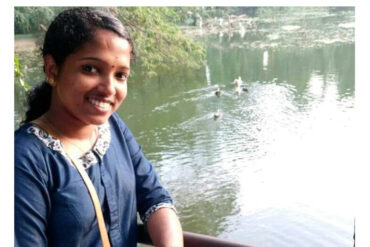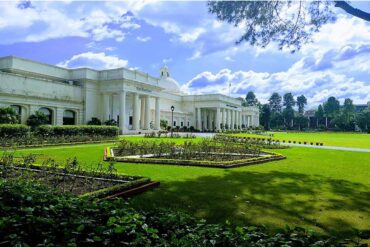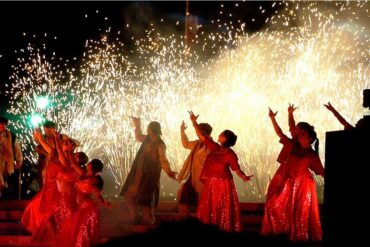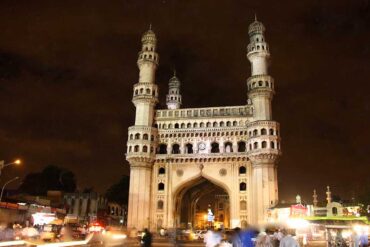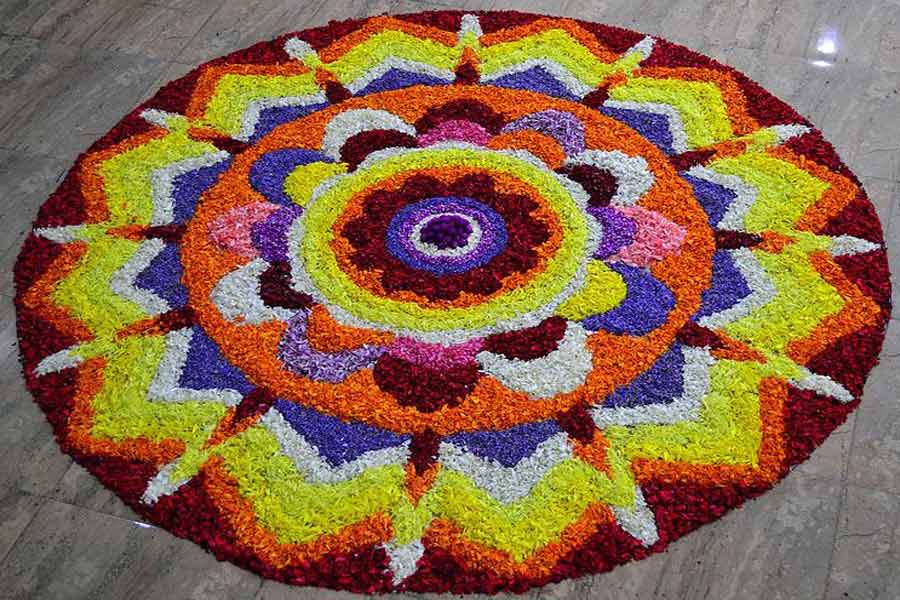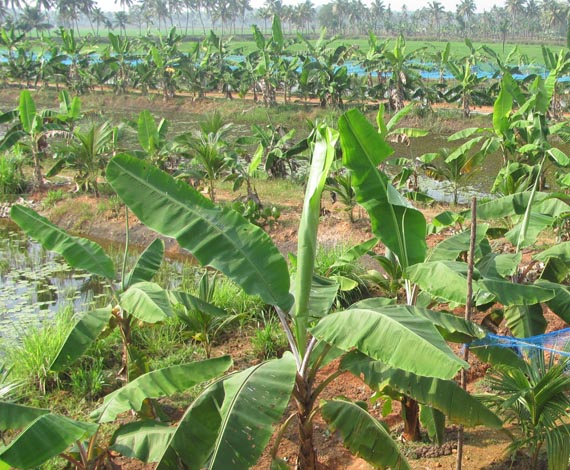During my childhood, Onam festivities consisted of a three-day holiday from my Kendriya Vidyalaya School which followed the central government holiday regulations rather than the Kerala calendar. I envied my cousins who got a ten-day long vacation break starting on the eve of Onam.
The Onam celebrations meant a pookkalam (an arrangement of flowers) in school, and we students were allowed to don civil clothes on this day. But my English medium school was not culturally a fertile site for Onam celebrations since it lacked the sensibility of Kerala schools—it had a more cosmopolitan atmosphere. To make it worse, the payasam (sweet porridge) that was served was bought from a store and not freshly-prepared.
We dressed up on the day of thiruvonam as if we would be inspected by an imaginary guest—we wore our best outfits that were brand new or smelt like that. And we would feast on a grand vegetarian feast. The surfeit of payasams would make up for the absence of non-vegetarian food.
Only much later did I realize that majority of the non-upper castes incorporate non-vegetarian dishes in their Onam feast. The people of North Malabar enjoy their Onam sadhya with meat accompaniments. This just shows how ‘sanskritized’ my middle-class Dalit upbringing had become.
If the Right-Wing propagandists depict Onam as an anniversary of the liberation of Kerala by Vamana from the ‘evil’ Mahabali/Maveli, then the present vegetarian Onam sadhya is a symbolic gesture of a victory feast following a regicide. Thus, one can say the act of meat-eating sheds light on a ‘counter-culture’ or resistance—meat on the Onam platter is in itself a defiant act against Brahminical sensibilities.
Though there had always been many versions of Onam like the multitude of oral traditions depicting the same stories from the epics, the ‘vegetarian’ version of the Onam has found resonance, thereby conforming to the cultural hegemony of savarna-shudra.
The song – Onapattu: Maveli naadu vaanidum kaalam/ Maanusharellarumonnu pole (When Maveli ruled the land, all humans were equal), an ode to the supposedly pleasant and prosperous reign of the Asura King attests to the claims of epistemic violence against Dalit-Bahujan imagination.
Scholars like Ajay S Sekher had argued that the song/poem by Sahodaran Ayyappan has the idiom and grammatical structure of contemporary/Modern Malayalam and is unlikely to have been composed in the 13th century as purported by the proponents of Hindutva.
A sense of bonhomie and brotherhood rarely seen across castes and communities is witnessed during the days of Onam in glaring contrast to the communally polarized social etiquette of today. The legend of the annual visit by the mythical king could hence be perceived as a safety valve against the violent cultural repression of Dalit-Bahujan imagination by Brahminical forces.

